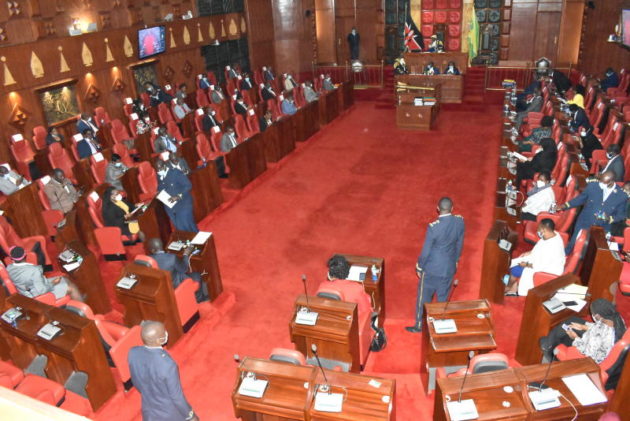A civil rights activist based in Nakuru has gone to court seeking to introduce term limits for Members of Parliament and County Assembly.
In a petition filed at the High Court, Laban Omusundi wants MPs and MCAs restricted to serving a maximum of two terms, arguing that their continued re-election without limit undermines the principles of democracy, good governance, and fairness outlined in Kenya’s Constitution.
Omusundi has listed the National Assembly, the Attorney General, and the Independent Electoral and Boundaries Commission (IEBC) as respondents in the case.
He is asking the court to declare that allowing lawmakers to run indefinitely goes against Article 10 of the Constitution, which upholds principles such as equality, inclusiveness, and integrity.
He pointed out that while the President, Governors, and Senators are already subject to two-term limits, MPs and MCAs are allowed to serve for an unlimited number of terms, creating what he called an imbalance in leadership standards.
He is pushing for the IEBC to be barred from clearing any candidates who have already served two terms from seeking re-election to the same position.
In his court documents, Omusundi argued that Parliament’s failure to act on a formal request he submitted on October 28, 2024, calling for legislation on the same issue, is unconstitutional.
He now wants the court to compel lawmakers to pass laws that will enforce term limits at both parliamentary and county levels.
He believes such a move would improve leadership by giving room to younger people, encourage innovation, and prevent certain individuals from holding on to power for too long. “Leadership renewal ensures innovation, curbs entrenched interests, and protects public institutions from capture,” he stated in the petition.
Omusundi added that long-serving leaders often benefit from their position to stay in power rather than through performance.
He said this weakens democracy and blocks new voices from coming forward. “Uniform standards must apply to all elected officials. The court should act to correct a systemic gap that allows indefinite re-election without performance-based accountability,” he added.
He also made reference to the African Charter on Democracy, Elections, and Governance, which Kenya ratified in 2012.
The charter promotes regular leadership change and the development of democratic values. He claimed that the current system allows for political survival based on personal networks and money, rather than leadership skills.
According to Omusundi, this culture has created space for patronage and weak oversight, while also discouraging women and young people from contesting political seats. “Prolonged occupancy of public office without rotation prioritizes personal ambition over service delivery and undermines ethical leadership,” he concluded.
